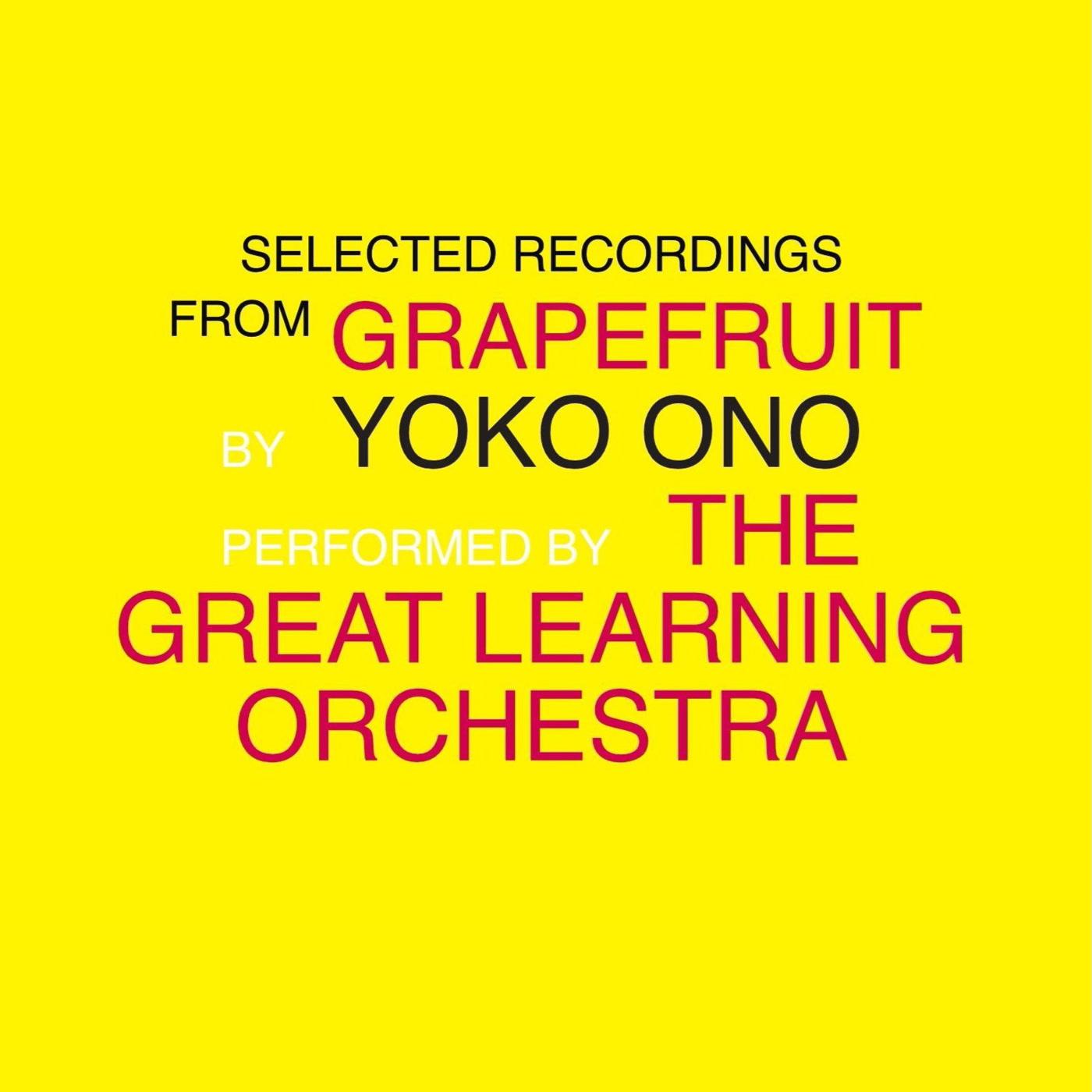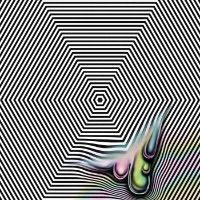- Digital
The Great Learning Orchestra
Selected Recordings from
Karlrecords
- Cat No: KR100
- Release: 2025-03-21
- updated:
Track List
-
1. The Great Learning Orchestra - Secret Piece
13:54 -
2. The Great Learning Orchestra - City Piece
08:14 -
3. The Great Learning Orchestra - Pieces for Orchestra - No.1: Peel
00:16 -
4. The Great Learning Orchestra - Pieces for Orchestra - No.2: Peek
00:44 -
5. The Great Learning Orchestra - Pieces for Orchestra - No.3: Take Off
00:39 -
6. The Great Learning Orchestra - Voice Piece for Soprano
00:25 -
7. The Great Learning Orchestra - Tape Piece II (Room Piece)
04:57 -
8. The Great Learning Orchestra - A Piece for Orchestra (Count all the stars . . .)
04:53 -
9. The Great Learning Orchestra - Water Piece
03:50 -
10. The Great Learning Orchestra - Clock Piece
02:15 -
11. The Great Learning Orchestra - Bicycle Piece for Orchestra
07:15 -
12. The Great Learning Orchestra - Pieces for Orchestra - No.4: Tear
01:11 -
13. The Great Learning Orchestra - Pieces for Orchestra - No.5: Touch
00:41 -
14. The Great Learning Orchestra - Pieces for Orchestra - No.6: Rub
02:58 -
15. The Great Learning Orchestra - Wood Piece
03:55 -
16. The Great Learning Orchestra - Wind House
07:12 -
17. The Great Learning Orchestra - Sweep Piece
01:53 -
18. The Great Learning Orchestra - Overtone Piece
05:25 -
19. The Great Learning Orchestra - Question Piece
08:35 -
20. The Great Learning Orchestra - Disappearing Piece
05:01
0bit/48khz [wav/flac/aiff/alac/mp3]
Originally self-published in 1964 in a limited edition of 500 copies under YOKO ONO's own imprint, Wunternaum Press, and later reprinted in expanded editions, the collection of over 230 texts, event scores and drawings that comprise "Grapefruit" has long been considered a foundational text in what became known as Conceptual Art, and envelops the orbit of Fluxus and experimental music. Though comparisons to JOHN CAGE may seem obvious, ONO's first attempts at textual composition actually pre-date her first encounter with the American composer by around a decade and have evolved free from CAGE's influence.
Another factor that sets these scores apart from associated forms of verbal notation from the same period (like LA MONTE YOUNG's "An Anthology Of Chance Operations" – with a contribution from ONO - or GEORGE BRECHT's "Water Yam", both from 1963) is ONO's ambivalence towards the necessity, or even possibility, of their physical realization – insteadthe idea being that the realization should take place in the mind of the reader ("Music of the Mind" is also the title of the current traveling exhibition which opened at Tate Modern, London in 2024).
However, a number of pieces from "Grapefruit" function very well as performance or event scores, with several of them becoming mainstays of ONO's concerts and performances throughout the early to mid 1960s. But hardly any performances have been recorded and released on disc (one notable exception being SONIC YOUTH's recording of "Voice Piece For Soprano") – so, 60 years after "Grapefruit" first appeared, "Selected Recordings From Grapefruit" is the very first full album of pieces selected from the many sections of the book.
The sonic realizations presented here are of a number of different kinds, encompassing studio-based ensemble performances, but also location, environmental and field recordings (and at times combinations of these), as the scores themselves dictate, and for the most part recorded live and acoustically, such that the performances, actions, situations and environments that you hear are real. The accompanying booklet with rare performance photos and some original typewritten scores from ONO's personal archive also includes the text instructions for each piece - thus allowing the listener to make a connection between the imaginative engagement and creative activity executed by the performing members of THE GREAT LEARNING ORCHESTRA and the resulting recording.
With 20 tracks and approx. 85 minutes duration, "Selected Recordings From Grapefruit" finally brings to ear some of the most important and influential 20thcentury avantgarde art!
Yoko Ono is an artist, musician, composer and peace activist, born in Tokyo, Japan in 1933. She was active with the international avant-garde music, art, and performance scenes of the early 1960s, organising a series of important events in her New York loft, also active in Tokyo and London, and later becoming a key figure within the Fluxus network of artists. Her 1964 book of instructions, drawings and texts Grapefruit, is regarded as a cornerstone of what became known as conceptual art.
Her solo albums, including Yoko Ono/Plastic Ono Band (1970), Fly (1971) and Approximately Infinite Universe (1973) have proved to be highly influential on the emergence of punk, post-punk, new wave, noise and a wide range of later experimental popular musics.
She has staged many high-profile campaigns to promote world peace, including the international WAR IS OVER! If you want it billboard campaign (1969), and the proclamation of the conceptual state of Nutopia (1973), in collaboration with John Lennon, and the IMAGINE PEACE TOWER, near Reykyavik, Iceland (2007).
As an artist, she has exhibited at numerous galleries, museums and institutions internationally. In recent years, this has included a series of retrospective exhibitions, including "YES YOKO ONO" at Japan Society, New York (2001), "Yoko Ono: One Woman Show, 1960 – 1971" at the Museum of Modern Art, New York (2015) and "Yoko Ono: Music of the Mind" at Tate Modern, London (2024).
The Great Learning Orchestra is an ensemble based in Stockholm, Sweden, which has been organising performances, workshops and events for 25 years. Essentially a network where musicians and artists come together to perform exploratory music, which centres around practices of listening. The ensemble is self-selecting from a list of over 100 musicians for each new project.
The GLO was founded in 1999 by Leif Jordansson and Pelle Halvarsson and since its inception has performed a large variety of contemporary and experimental works. The group has worked with Gavin Bryars, Terry Riley and Pauline Oliveros, and in recent years has collaborated with and commissioned new work from J.G. Thirlwell, Arnold Dreyblatt, Christina Campanella and Leah Asher amongst others. Several musicians, composers and artists have also contributed to the A4 Project, which investigates the possibilities of scores written to fit on a single side of A4 paper.
The orchestra's name is derived from British composer Cornelius Cardew's work The Great Learning, a large-scale experiment in social music making, and the ensemble is in many ways influenced by this legacy of openness, experimentation and participation.
Credits:
All compositions by Yoko Ono
Copyright by Yoko Ono 1964, 1970, renewed 1992, 1998
Produced by Robin McGinley
Recorded, engineered, mixed and assembled by Ricardo Atienza,
Niklas Billström, Robin McGinley and Leif Jordansson
Mastering and lacquer cut by Kassian Troyer at D&M, Berlin
Artwork concept by Thomas Herbst
Layout and design by kaidoh



